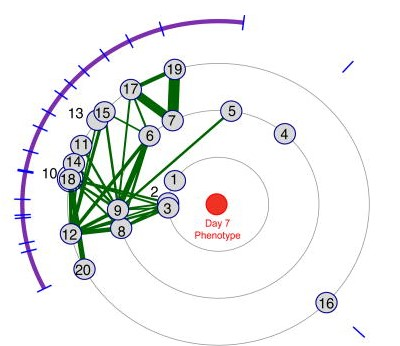Gene signatures related to B-cell proliferation predict influenza vaccine-induced antibody response.
Vaccines are very effective at preventing infectious disease but not all recipients mount a protective immune response to vaccination. Recently, gene expression profiles of PBMC samples in vaccinated individuals have been used to predict the development of protective immunity. However, the magnitude of change in gene expression that separates vaccine responders and nonresponders is likely to be small and distributed across networks of genes, making the selection of predictive and biologically relevant genes difficult. Here we apply a new approach to predicting vaccine response based on coordinated upregulation of sets of biologically informative genes in postvaccination gene expression profiles. We found that enrichment of gene sets related to proliferation and immunoglobulin genes accurately segregated high responders to influenza vaccination from low responders and achieved a prediction accuracy of 88% in an independent clinical trial. Many of the genes in these gene sets would not have been identified using conventional, single-gene level approaches because of their subtle upregulation in vaccine responders. Our results demonstrate that gene set enrichment method can capture subtle transcriptional changes and may be a generally useful approach for developing and interpreting predictive models of the human immune response.
Authors
Yan Tan; Pablo Tamayo; Helder Nakaya; Bali Pulendran; Jill P Mesirov; W Nicholas Haining
External link
Publication Year
Publication Journal
Associeted Project
Systems Vaccinology
Lista de serviços
-
Is the gut microbiome key to modulating vaccine efficacy?Is the gut microbiome key to modulating vaccine efficacy?
-
Toxicogenomic and bioinformatics platforms to identify key molecular mechanisms of a curcumin-analogue DM-1 toxicity in melanoma cells.Toxicogenomic and bioinformatics platforms to identify key molecular mechanisms of a curcumin-analogue DM-1 toxicity in melanoma cells.

